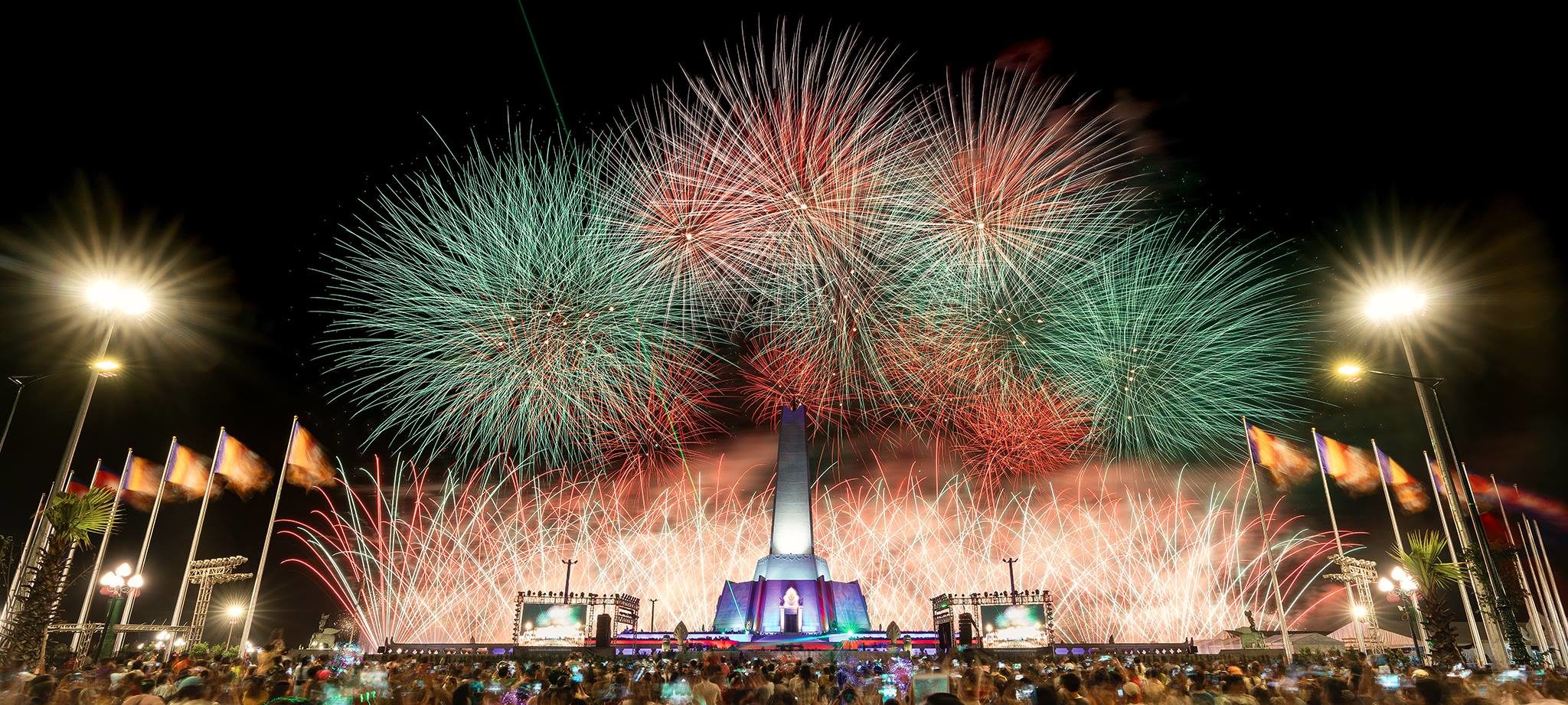Cambodian Victory Over Genocide Day

Cambodian Victory Over Genocide Day is one of the most important events in the nation, and it’s recognized every year.
It’s a serious and somber event, so it’s not a ‘celebration’ in the traditional sense—but it’s an important part of the cultural calendar in many ways.
What is the Purpose of Cambodian Victory Over Genocide Day?
Cambodian Victory Over Genocide Day marks the end of the Khmer Rouge genocide, which came to an official close on January 7th, 1979. So, the event this year will be celebrated on the 7th January 2025.
For those who are unaware, the Khmer Rouge was a genocide that took place in Cambodia.
Between 1975 and 1979, the Khmer Rouge committed some of the worst atrocities in modern history. Led by Cambodian dictator Pol Pot, they sought to make Cambodia completely self-sufficient, and largely independent from the rest of the world.
They did so via very aggressive methods; killing, torturing and imprisoning anyone who they thought might be opposed to their goals. In fewer than four years, they slaughtered up to 2.5 million people (more than 25% of the nation’s population at the time), and tortured and punished many more.
The Khmer Rouge also used tactics of starvation, resettlement, and nationalistic propaganda in their attempts to obtain complete control and obedience. They undertook medical experiments, and would routinely murder and torture both babies and young children.
Eventually, in January 1979, the Khmer Rouge was overthrown by the Vietnamese government, and the dictatorship ended immediately.
How Can I Learn More About The Khmer Rouge Genocide?
There are some very informative genocide sites in various parts of Cambodia. These sites are very sad and disturbing, but they’re an essential way to learn about the atrocities—and to understand Cambodia, its history, and its people.
The two most well-known genocide sites are Tuol Sleng Prison, and the Cheung Ek Killing Field—both of which are in Cambodia’s capital of Phnom Penh.
Tuol Sleng prison is particularly notorious. Also known as Security Prison 21, only seven adults ever managed to pass through the prison alive.
Two of the best lesser-known sites are the Killing Caves and the Well of Shadows, both of which are close to the small city of Battambang.
You don’t necessarily need to visit Cambodia to learn about the genocide. The most well-known Cambodian genocide movies are the Oscar-winning Killing Fields (released in 1984), and First They Killed My Father (directed by Angelina Jolie, and available on Netflix).
Some of the most insightful genocide-related books include Nawuth Keat’s Alive in the Killing Fields, and Luong Ung’s First They Killed My Father (which of course inspired the movie of the same name).
But to learn about the memorial day itself, it’s best to be in the nation while it happens. Here, you can get the best context and information, and insights into how the genocide relates to present-day Cambodia.
To learn about the memorial day itself, it’s best to be in the nation while it happens. Here, you can get the best context and information, and insights into how the genocide relates to present-day Cambodia.
How do Cambodian People Reflect on Victory Over Genocide Day?
Unlike some of the country’s other important dates, Cambodian Victory Over Genocide Day isn’t a ‘celebration’ as such.
It’s mostly marked in understated ways, through speeches, ceremonies, and readings. But as time moves on, the day is slowly becoming slightly more upbeat and positive, with occasional dances and songs. These humble festivities are used to honor those who died, and to embrace the freedom and promise of the future.
Cambodian Victory Over Genocide Day is a very sad occasion, and people mourn relatives, friends and associates who died under the Khmer Rouge. But it can also be an inspiring day, as locals celebrate the bravery and tenacity of their fellow natives.
If you have Cambodian heritage or family, Victory Over Genocide Day can be an appropriate time for visiting the nation. During this period, you can learn more about your ancestors and their struggles.
Or if you’re particularly interested in the history and heritage of the nation, Cambodian Victory Over Genocide Day can be a good time to visit. But please make sure you’re tactful—most of Cambodia’s current inhabitants were personally affected by the genocide in some way.
Some tourist attractions might also hold special services or events. Tuol Sleng prison, for example, recognizes the date every year.
But no matter your reasons for visiting, and no matter where you go, you’ll be welcome in Cambodia so long as you’re respectful and reverent.
Cambodian Victory Over Genocide Day is one of the six most important occasions in Cambodia. If you want to read more about the other five, we have blog posts on Khmer New Year, Bon Om Tuk (the nation’s Water Festival), Bon Pchum Ben, Vesak Bochea (Buddhist Day), and all-important Independence Day.
